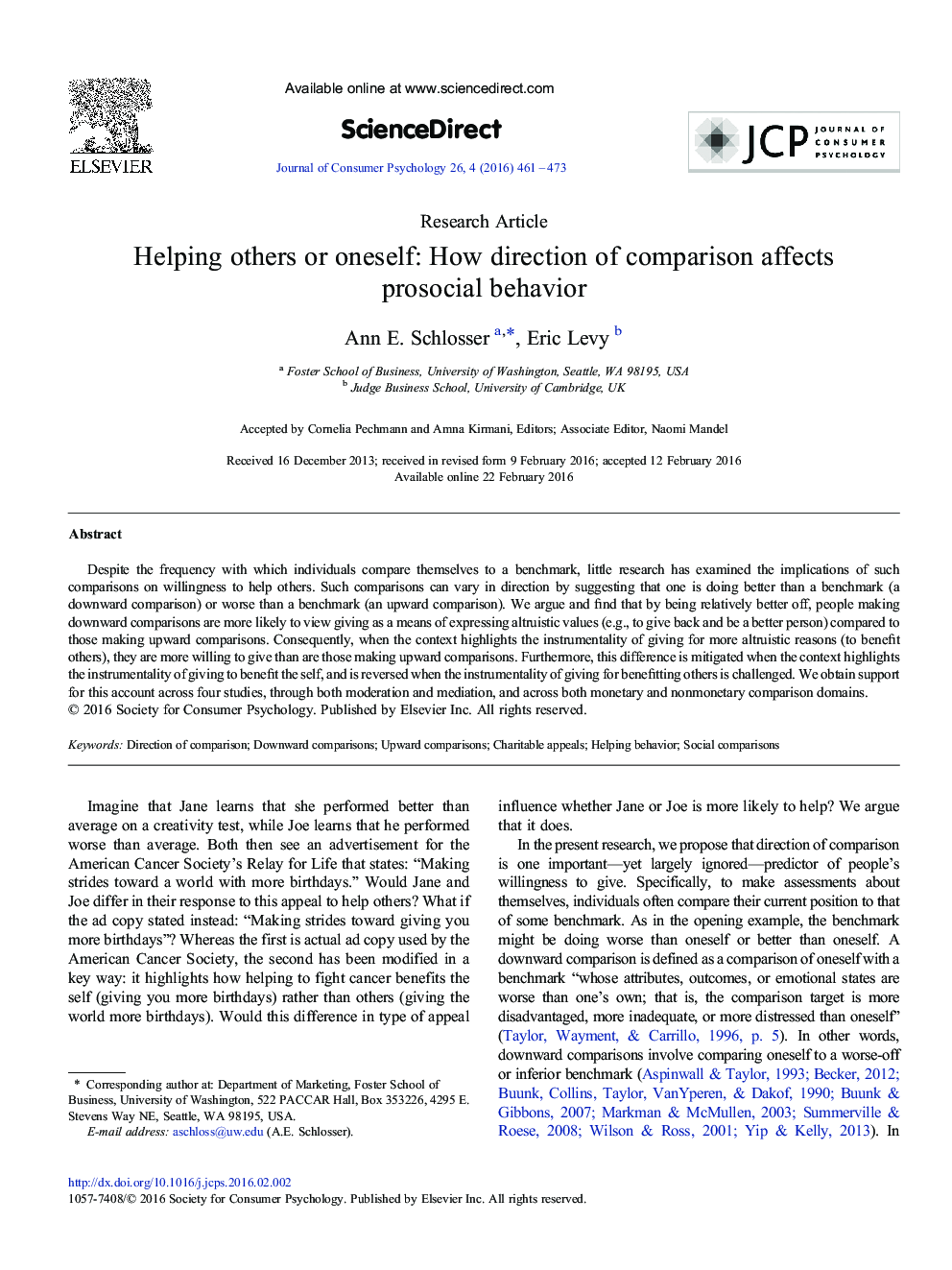| Article ID | Journal | Published Year | Pages | File Type |
|---|---|---|---|---|
| 5034287 | Journal of Consumer Psychology | 2016 | 13 Pages |
Despite the frequency with which individuals compare themselves to a benchmark, little research has examined the implications of such comparisons on willingness to help others. Such comparisons can vary in direction by suggesting that one is doing better than a benchmark (a downward comparison) or worse than a benchmark (an upward comparison). We argue and find that by being relatively better off, people making downward comparisons are more likely to view giving as a means of expressing altruistic values (e.g., to give back and be a better person) compared to those making upward comparisons. Consequently, when the context highlights the instrumentality of giving for more altruistic reasons (to benefit others), they are more willing to give than are those making upward comparisons. Furthermore, this difference is mitigated when the context highlights the instrumentality of giving to benefit the self, and is reversed when the instrumentality of giving for benefitting others is challenged. We obtain support for this account across four studies, through both moderation and mediation, and across both monetary and nonmonetary comparison domains.
